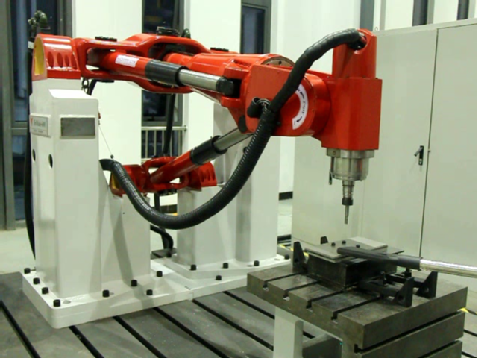Workpackages
The ECSASDPE project brings the 8 internationally recognised institutions together and combine their expertise in the composite material machining, robotics and automation, surface metrology and characterisation to conduct the leading-edge research for orbital drilling of Al/CFRP/Ti stacks. The consortium will provide the complementarities and synergies between the partners to solve the emerging issues in the academic and industrial sectors. The project has been divided into six inter-related work packages which will be investigated step by step. Each work package has one lead organisation and several participants.
The high quality infrastructure and strong background of the consortium will further strengthen the capability to achieve the ultimate goal. The inter-disciplinary cooperation character of the EU and Chinese organisations and strong international collaborations are advantageous for successful establishment of the key enabling technique to benefit the niche areas of aero-structure machining, robotics and automation, surface integrity inspection and evaluation.
WP1 Setup of knowledge base and road mapping
This work package focuses on the analysis of individual user needs and demands for stacked AL/CFRP/Ti machining process, equipment and surface characterisation technologies, and evaluates and assesses various relevant methodologies. A systematic review and interviews with selected users from various industrial sectors will be conducted and a knowledge base of end-users and their requirements will be setup subsequently. The survey and review will result in recommendations for new methodologies for ECSASDPE. Based on the analysis of the individual user needs, a knowledge base will be built for further exploitation. The beneficiaries/partner organisations involved in this WP have their experience and knowledge in parallel robotic machine tools, robotic assisted automaton, composite material machining technologies and their potential applications. The majority of the work on this WP will be done in the host organizations. This work package will be led by UoW.
WP2 Fundamentals of drilling process
This work package focuses on the development of (1) drilling damage mechanisms and suppression methods; (2) hole quality characterization and evaluation methods; and (3) machining process parameter optimization techniques. This work package will be led by QUB.
WP3 Key techniques for Equipment development
This work package focuses on the development of the techniques for: (1) conceptual and integrated design; (2) kinematics calibration and compensation; (3) sensing, measurement and active stiffness control; and (4) drilling process monitoring and adaptive tuning. This work package will be led by UDE.
WP4 System integration and performance verification
This work package focuses on the techniques for: (1) Drilling robot prototype; (2) Open architecture-based CNC system; (3) Helical drilling experiments and evaluation. This work package will be led by SIGMA.
WP5 Dissemination and exploitation
This work focuses on the dissemination and exploitation of the project results. The dissemination will be implemented through the following activities: ECSASDPE public events/workshops and publications including patents, journal & conference papers, reports and the media releases. Each partner will have at least one publication on average each year, giving more than 36 publications in total. The consortium targets 3 patent applications during the project period. This work package will be led by QUB.
WP6 Project management
This work package concerns all the management aspects of the project and monitoring of progress towards the ultimate objectives, identifying shortcomings and recommending remedial action where necessary. The coordinator will oversee action plans and monitor their timely execution, within the given resources. All IPR issues will be dealt with carefully. The consortium members will meet every six months to report project progress. Regular joint workshops and seminars with the attendance of all beneficiaries/partner organisations will be convened every 12 months. During these workshops and seminars, attendees will share the experience and knowledge occurred in the joint research and training activities. Besides the regular consortium workshops and seminars, irregular workshops and seminars will be organised in both EU and China for the local exchanged staff. This work package will be led by UoW.
